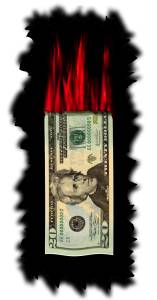
Click HERE for more information.
 | I have some really great eBooks available! Click HERE for more information. |
| The True Cost Of Cigarette Smoking by Keith Rawlinson Volunteer Budget Counselor |
 |
Want to improve your health, have extra spending money and be one step closer to becoming wealthy? Then stop burning up money by smoking. Quit smoking or at least cut back. Then start putting that money into a bank account or Mutual Fund instead. And of course, read all of the articles on the Financial Page and put what you learn into practice. If you would like to hear more of my thoughts and opinions on various aspects of saving, investing and money, please check out My Humble Opinion. |
